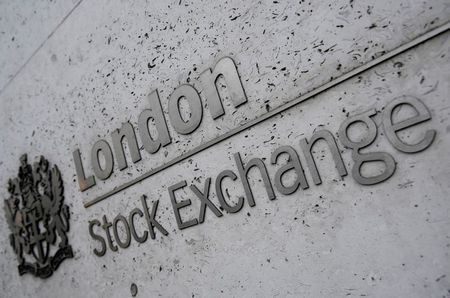Why listed companies and the City are calling for a red tape revolution

The watchdogs tasked with imposing governance and reporting standards on financial firms walk something of a tightrope across the Square Mile.
Get it right, and robust standards remain the capital’s great draw: shielding investors, keeping executives in check and boosting transparency in the boardroom. But go too far, and the debate risks becoming one of ‘burdensome rules’ and ‘restrictive red tape’.
Over the past two years as the government and regulators eye up a slew of reform, the sentiment towards the UK’s current regime has shifted firmly into the latter camp.
In a report out this week, the rules of the Square Mile came under fresh scrutiny as a survey of top bosses revealed the scale of the cumbersome reporting requirements inflicted on Britain’s boardrooms.
Some 81 per cent of executives at the UK’s biggest listed companies say that onerous reporting mandated under City rules are eating up their time and preventing them focusing on strategy, according to the Boardroom Bellwether from the Financial Times and The Chartered Governance Institute UK & Ireland.
The extent of the reporting was actually hampering their ability to have strategy discussions, according to the bosses surveyed.

Those findings are by no means new. Earlier this year, when asked by the industry body UK Finance , anonymous executives said “the cost and time needed to manage the obligations that apply to publicly traded companies [in the UK] (such as governance and reporting) are seen as onerous and disproportionate.”
Alongside traditional financial reporting, the requirements of firms have been mounting. Firms are now forced to report on areas ranging from environmental, social and governance (ESG) compliance, diversity, and the remuneration of top executives.
Burdensome rules have formed a backdrop to much of the efforts to reform London over the past year. But one top analyst tells City A.M. the need for an overhaul has reached something near a breaking point.
“Corporate governance is a significant burden and a major issue for listed companies. It is therefore essential that any regulatory reform is effected with a sense of urgency, and is fundamental,” Charles Hall, head of research at investment bank Peel Hunt, told City A.M.
“UK regulators are proposing reforms with the aim of creating greater accountability in corporate financial systems and reporting, and instituting related reforms intended to improve corporate transparency and accountability.
“Existing reforms are unlikely to have a material benefit given growing regulatory oversight in areas such as ESG and audit.”
Further incentives are needed to offset that burden of regulation for companies, Hall added, with potential tweaks including stamp duty, reducing tax for listed companies, changing ISA rules, and effecting changes to pensions.
“Otherwise, UK equity markets will continue to decline,” he warned.
The calls play into the wider debate gripping the City over the waning appeal of London’s markets. In the US for example, bosses are not held to nearly the same onerous requirements on pay and transparency, fuelling fears that more firms will ditch London for a more light touch home on the other side of the Atlantic.
Existing reform efforts in the UK are also already dividing opinion. After the FCA tabled a number of tweaks to listing and governance rules to tempt in more firms, a group of top pension funds pushed back on the efforts on the grounds that it risked “watering down” down investor protections.
The Financial Reporting Council has also taken on efforts to boost the awareness of the UK’s ‘comply or explain’ regime and allow for greater flexibility in the way that firms report and adhere to the rules. However, critics say the failure of the current set up is nothing new and has failed repeatedly over the past few decades.
Mark Austin, the mastermind of a major review of London’s capital markets, says that while London’s current regime may have developed in “logical and understandable way”, regulators need to take a step back and ask “what is it actually trying to achieve – what is it for – and does it, in its current burdensome form, actually achieve that”.
“The answer is I think maybe but at an unreasonable cost to issuers and in a way that makes it act as a deterrent to potential users of our markets,” he tells City A.M.
“No one is a believer in bad governance or stewardship but we need urgently to reshape a regime that has in many areas become more of a hindrance than a help for users of our markets.
While the rule of law and the standards required to be listed on London’s markets have traditionally fallen in the basket of pro rather than con, as regulators try to strip and reform some of the red tape in London, their tightrope across the City is looking an increasingly treacherous one.